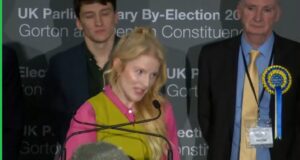GERMANY HAS just announced that Angela Merkel’s “open door” policy for refugees has been overturned in practice as well as forgotten in principle: only 280,000 people sought asylum in 2016 – down by 600,000 on 2015.
Merkel’s original response to the increase in refugees fleeing Syria and seeking safety in Europe was to be very welcoming. This was probably based more on the boost which she hoped migrants would bring to the German economy than on altruism. The economy was under severe strain from bankrolling the EU and the economic rescue package for Greece, needed to stop the collapse of the Euro, as well as the ongoing costs of German reunification.
She did not count on the social consequences of sudden mass immigration at a time of economic uncertainty. With no political party or large scale social movement in Germany tackling racism and with the extreme right stirring it up, Merkel came under great pressure to reduce immigration – and buckled.
The irrational fear of refugees and other immigrants has had consequences elsewhere. It was a major factor behind the “Brexit” vote in last year’s EU referendum and has given UKIP a boost in opinion polls and various elections – pulling the major political parties to the right. Racism against asylum seekers has long been boosting support for the Front National in France.
Racism was also a big factor in the election of Donald Trump as US President. During his campaign he called for Muslims to be excluded from the USA and for building a wall to keep Mexicans out of the USA too. His brand of racism is now being labelled “populism” – as if it was just a respectable new brand of politics.
With elections in both Germany and France this year, the race issue will not go away – and is likely to see the extreme right gain ground in the elections both countries are facing this year.
[Adverts]
 East London News A Force for the community…
East London News A Force for the community…




